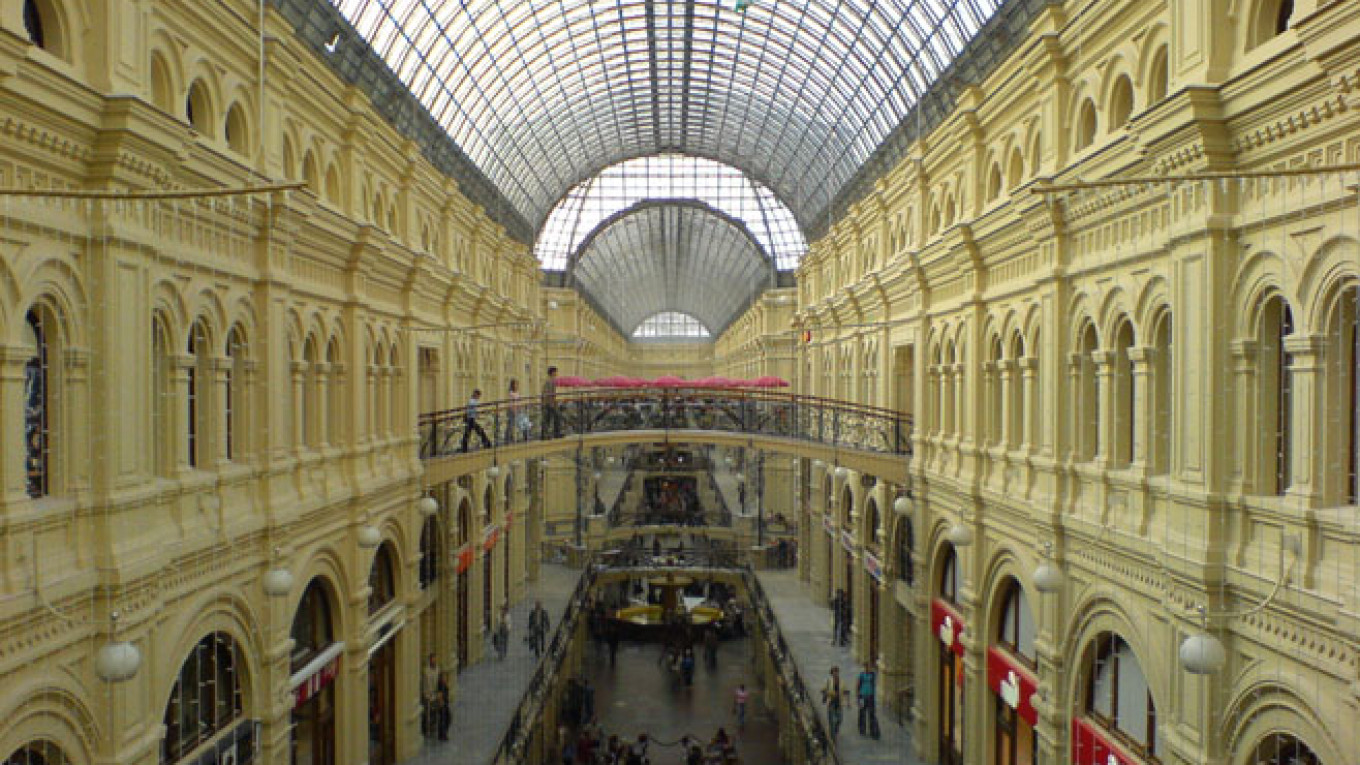Rental rates in the office and retail segments of Moscow commercial real estate are expected to decline for the first time in years, as increased availability gives tenants a leg up in negotiations and poor economic forecasts spur them to strike a hard bargain.
Up until about 9 months ago, rental rates were rising overall and landlords had the upper hand at the negotiating table, but now the market is beginning to shift, said Tom Mundy, head of research at real estate consultancy JLL Russia & CIS.
In both segments, the situation depends on the class of the space in question. Prime retail properties, such as the Metropolis shopping center in northwest Moscow, are still in low supply, meaning that tenants are for now happy to accept their landlords' terms. But the decline in the exchange rate of the ruble earlier this year, which pushed up the cost of imported products for merchandisers and increased the price of their dollar or euro-denominated rents relative to ruble-denominated revenues, has put other retailers on the hunt for ways to trim costs. All told, rents on average retail spaces could fall 10 to 15 percent by the end of the year, Mundy said.
In the long term, however, the high cost of borrowing will force Russian landlords to keep the rental rates in Russian malls higher than those on offer in Europe in order to maintain projects' profitability, said Nikolai Kazansky, managing partner of Colliers International. Rents for Moscow retail space are currently two to three times higher than those found in most European cities.
In the office segment, rents are already declining: the average rate on a square meter of Class A office real estate fell 3 percent in the first quarter of 2014 to $776 per year, while Class B sank almost 7 percent to $457 per year, according to the Knight Frank residential and commercial property consultancy. The falling costs are the result of both an increase in supply and the current economic situation — companies are loath to take on the high price of moving amid widespread economic uncertainty. This unwillingness has seen new rental agreements and sales decrease 35 percent in the first quarter this year compared to the same period in 2013.
The decline is not so much a recession as it is a "cool-down" after a period of intense growth in 2011 and 2012, said Konstantin Losyukov, director of Knight Frank's office real estate department. And once again, the situation varies by class: Class A properties within Moscow's Garden Ring are in low supply, for instance, and so have seen little change in their rental rates, according to Mundy.
Although rents on commercial real estate may decline slightly in the short-term, it would be premature to speak of a failing market, especially in retail, where Russian consumers are severely underserved in comparison to their European neighbors. "The theme for all commercial real estate in Russia is that there still is not enough of it. Even if we do see downward pressure on rents, it's really just a reflection of the short-term economic situation," Mundy said.
See also:
A Message from The Moscow Times:
Dear readers,
We are facing unprecedented challenges. Russia's Prosecutor General's Office has designated The Moscow Times as an "undesirable" organization, criminalizing our work and putting our staff at risk of prosecution. This follows our earlier unjust labeling as a "foreign agent."
These actions are direct attempts to silence independent journalism in Russia. The authorities claim our work "discredits the decisions of the Russian leadership." We see things differently: we strive to provide accurate, unbiased reporting on Russia.
We, the journalists of The Moscow Times, refuse to be silenced. But to continue our work, we need your help.
Your support, no matter how small, makes a world of difference. If you can, please support us monthly starting from just $2. It's quick to set up, and every contribution makes a significant impact.
By supporting The Moscow Times, you're defending open, independent journalism in the face of repression. Thank you for standing with us.
Remind me later.


